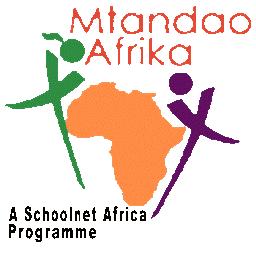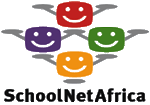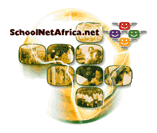MTANDAO
ThinkQuest Africa is a Pan African Programme that aims to promote a new style of learning and Internet-based education in Africa. It promotes adoption of methodologies and approaches that enhance the educational process using ICT to empower African youth to become critical learners, thinkers, and eventually future African leaders who will contribute to the development oftheir respective countries. 
TQA encourages collaboration among African learners in development of African educational content. It also promotes African languages on the Internet.
The programme is foreseen as a catalyst for creating synergies between local initiatives in the area of ICT for education, regional initiatives adopted by SchoolNet Africa in terms of connectivity, capacity building and the creation of an African Education Knowledge Warehouse, and international programmes like TQ international.
Objectives:
- Promote intra-African collaboration among African learners through the use of education-enhancing ICTs
- Promote collaboration between African learners and learners internationally on education-related programs
- Enable African learners to develop high quality African-related educational content
- Empower African learners to be critical thinkers
- Building circles of knowledge among African learners children
Visit ThinkQuest Africa: at http://www.mtandao.org/
Building African SchoolNet Champions
The main objective of the Building African SchoolNet Champions Programme is to establish a cadre of African leaders who have acquired a range of skills to drive systemic change towards educational transformation at national level. This programme contains a series of projects aimed at building capacity and leadership amongst a leading cadre of digital pioneers in promoting education through ICTs in African schools.
Why an African Schoolnet Champions Program
The development of SchoolNet organizations has been a response to the cry for the effective procurement of ICTs, its integration into the education and training system with the concurrent training of teachers. This development has also responded to the concerns of the increasing digital and knowledge divide as well as the need to use technology to create cost efficient education systems that can support the current international movements for universal primary and secondary education.
SchoolNet organizations in various African countries have had different historical beginnings. Some were formed with champion teachers leading the way, others with donor and development agencies playing a central role, while others saw local ICT champions seeing ICT in schools as vital for their country’s progress.
In many of the African countries, schoolnet organizations are in different stages of development. The people either employed or volunteering in SchoolNets come with various skills. However, the overall consensus is that such organizations require management education and training to enable them to function at an optimum level displaying greater efficiency, productivity when delivering services and products to the education and training systems.
This need was strongly suggested and endorsed during the workshop that focused on SchoolNets in Africa and led to the formation of the interim committee of Schoolnet Africa (SNA). The workshop, in Namibia from 17 – 20 July 2000 mandated the interim SNA committee to consider the development of African SchoolNet champions as a high priority area in its programme of action.


